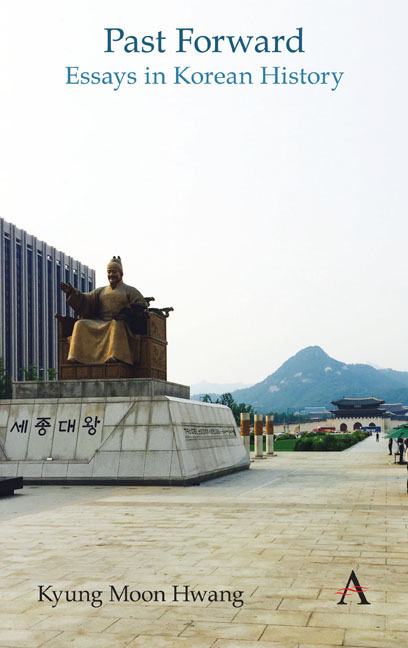Book contents
- Frontmatter
- Contents
- List of Figures
- Foreword
- Chronologies of Korean History
- Themes
- Acknowledgments
- Note on Romanization and Spelling
- Part I Circulating History
- Part II Durable Traditions
- Part III Ancient Remains
- Part IV Dynastic Depths
- Part V Modern Origins
- Part VI Challenges of Nationhood
- Part VII History Makers
- Part VIII External Presences
- Part IX Trials of Modernization
- Part X Gripped by the Past
- 70 Natural Disasters and the False Wisdom of the Past
- 71 Royal Dangers
- 72 North Korea's Alternative History
- 73 Origins of Korea's Political Corruption
- 74 Anti-Communism's Powerful Hold
- 75 Fraudulent Captains of the Sewol Ferry Disaster
- 76 Overcoming Past Hierarchies
- 77 Gripped by the Authoritarian Mindset
- 78 Ways of Living History
- Index
74 - Anti-Communism's Powerful Hold
from Part X - Gripped by the Past
- Frontmatter
- Contents
- List of Figures
- Foreword
- Chronologies of Korean History
- Themes
- Acknowledgments
- Note on Romanization and Spelling
- Part I Circulating History
- Part II Durable Traditions
- Part III Ancient Remains
- Part IV Dynastic Depths
- Part V Modern Origins
- Part VI Challenges of Nationhood
- Part VII History Makers
- Part VIII External Presences
- Part IX Trials of Modernization
- Part X Gripped by the Past
- 70 Natural Disasters and the False Wisdom of the Past
- 71 Royal Dangers
- 72 North Korea's Alternative History
- 73 Origins of Korea's Political Corruption
- 74 Anti-Communism's Powerful Hold
- 75 Fraudulent Captains of the Sewol Ferry Disaster
- 76 Overcoming Past Hierarchies
- 77 Gripped by the Authoritarian Mindset
- 78 Ways of Living History
- Index
Summary
When the Obama administration of the United States moved to normalize relations with Cuba in 2015, a minor uproar arose in protest, the most fervent of which came from the older members of the Cuban exile community in Florida who had fled the island nation after the communist takeover in the late 1950s. This community, however, remains relatively small, and their views on communism seem increasingly simplistic and outdated.
Now multiply the effects of such sentiments tenfold, and you have South Korea, or more specifically the older generation of South Koreans who still see communism as among the greatest threats and evils. Like the Cubans in South Florida, these South Koreans are the product of their country's long struggle against a communist state, and so it is understandable that they hold such views. But these views are just as antiquated as those of the Florida Cubans, and sadly, they continue to hold some sway over South Korea today. Why?
To answer, we must begin by recognizing the historical roots of this rabid anti-communism, which played a central role in the birth of South Korea itself in the late 1940s. Immediately following the end of World War II and Korea's liberation from Japanese colonial rule in 1945, anti-communism was implanted and enforced by the American occupation, and then used as a tool for repression, mobilization and legitimization by successive South Korean dictatorships. Within half a year after the establishment of the Republic of Korea in 1948, the government headed by President Syngman Rhee instituted the National Security Law as an all-inclusive legal mechanism to stifle political opposition.
Since then, this law, born and developed in parallel with South Korea itself, has outlasted five different constitutional systems and an enormous degree of social, economic and cultural change. Throughout South Korea's history, the National Security Law acted as the symbol, originator and enforcer of the fear of communism, thus serving the interests of various dictatorships in legitimatizing their rule and in suppressing resistance.
The most egregious application of this and other anti-communist statutes came in 1975 when the “Yushin” dictatorship under Park Chung-Hee arrested scores of dissidents with fabricated charges of communist activities.
- Type
- Chapter
- Information
- Past ForwardEssays in Korean History, pp. 214 - 216Publisher: Anthem PressPrint publication year: 2019



